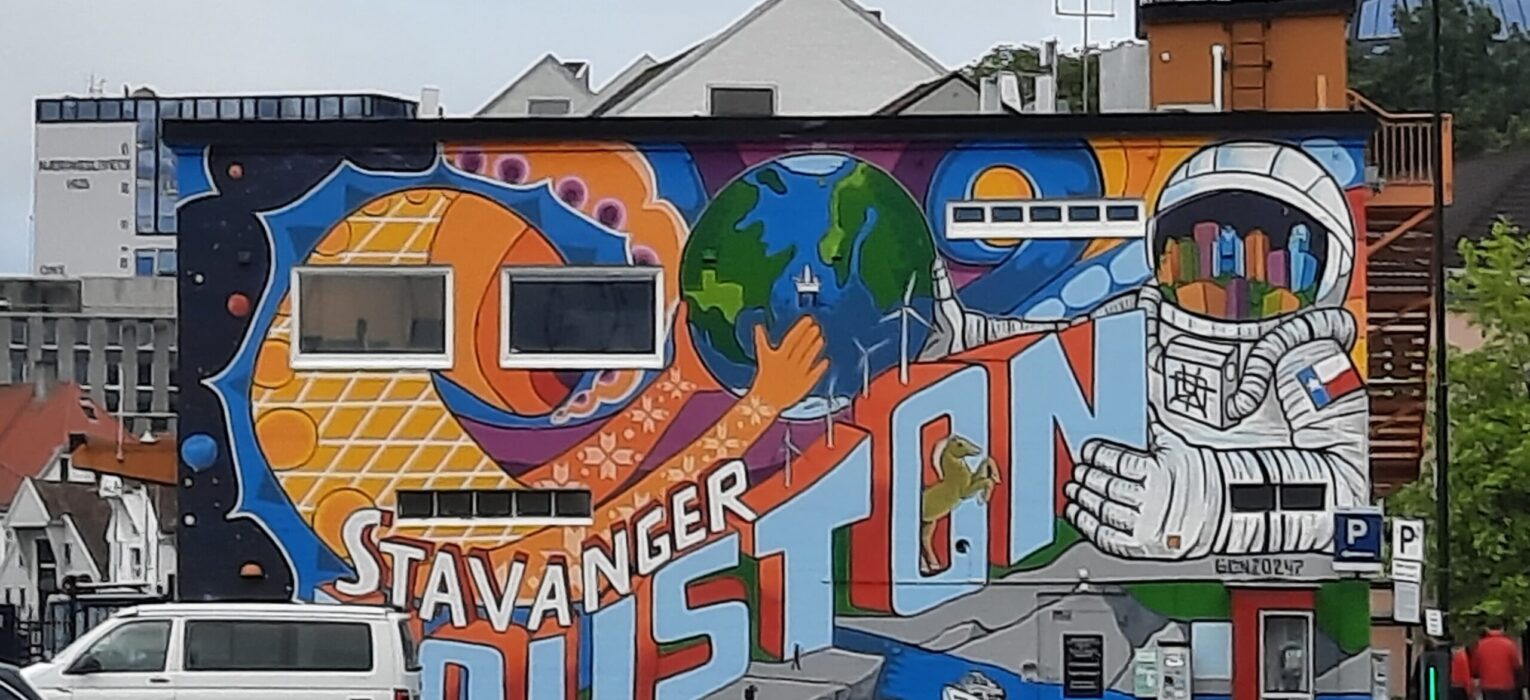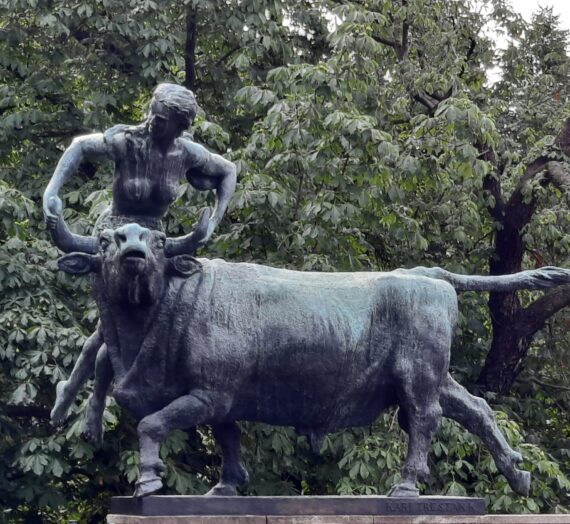Litz woke up with sunrise in her small cozy room. She looked at the traditional furniture of that cute apartment and imagined a little Norwegian girl having grown up there. After a quick filter coffee and a chocolate muffin, she took a walk downtown.
She loved strolling in the early morning. Less people meant more space. More space meant less chaos. She passed by a monument “dedicated to the men and women of Norwegian blood who have contributed to the building of America”. She had a satirical thought at the remembrance of all the international blood having contributed to that.
Litz headed to Stavanger Art Museum by bus. The building had a nice café and a bookshop at the entrance. There were two main halls. She went first to the exhibition of the popular Norwegian visual artist Jan Groth, who had recently passed away. A recording of his drawing technique by plaster kept her glued for long to her seat. On the opposite hall, Litz hesitated before attending the exhibition of a Ukrainian artist called Zhanna Kadyrova. Her hesitation was not related to geopolitical reasons, but rather to the foreseen emotional impact. She found pieces of bread on a table, handmade by stone. At a time when grain was blocked in Odessa, it didn’t take long to Litz to understand the implications. A documentary filmed by the artist confirmed Litz’ assumptions.
When she exited the museum, she glanced at a couple of quiet old people having coffee and cake in the wonderful dehors of the café, but she headed to the adjacent park instead. She needed a walk in nature to dissolve her compounded feelings, the unwanted memories triggered by her solidarity to the offended party.
The park was silent, she crossed only a few people. She reached a crowded camping place, where curious glimpses made her rapidly turn around. All that green gave her peace of mind. She stopped at a bench by the lake, alone with harmless ducks, sightseeing. The slow movement of water dissolved the turbulent waves in her head. She saw herself in the character of a Monet painting.
The hours passed by. “She always had the feeling that it was very, very, dangerous to live even one day”. However, she stood silently at the bus stop, next to a group of youngsters carrying an old chest of drawers from a place to another. She sighed.
Back downtown, she headed to the terrasse facing her favorite harbor. The little harbor was in the front island, and it was accessible only by boat. She stared at the calm sea until sunset, when promptly lights were switched on and made the landscape even more fascinating. At that point in time, she headed to the old town, passing by the illuminated central fountain. The old town had intricated peculiar streets full of history. Even the soil was evocative.
Walking back along the main harbor, Litz noticed the doubling of cruise ships. She recognized the noise at the bars. For a second, she considered attending a rock music concert, but soon changed her mind.
There would have been enough time to do that in proper company.




